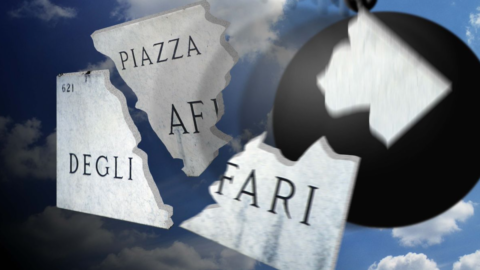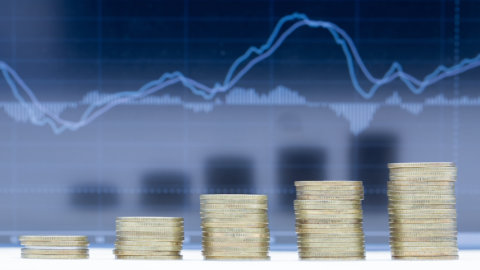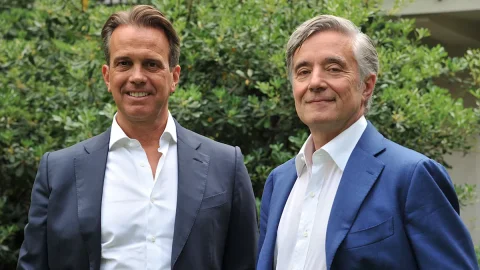BAGS STILL DOWN, MILAN THE WORST
THE SWISS DAM AGAINST THE FRANC IS NOT ENOUGH
Not enough time to wait for the ringing of the bell that opens the Wall Street session and a new tornado of sales has unleashed on the European stock exchanges, just to anticipate the misfortunes of the US price lists, already announced by the marked decline in US futures. However, it was Piazza Affari that paid the most for it, in free fall after 14 pm: the loss, while the suspensions for excessive reductions followed one another (among others Intesa, Unicredit, Banca Mps, Bpm, Fiat Industrial, Exor and Stm), exceeded the 3 percent threshold. For the first time since the index existed (June 2009) the Ftse/Mib fell below 14.000 points. Italy remains the weak link in a high-tension situation in the Eurozone, where there is no shortage of negative news: German industrial orders fell by 2,8% in July, much more than the first estimate (-1,5 .1,98%) . Then, in line with the rest of Europe, the climate improved thanks to the economic data arriving from the USA. But the fears of a worsening of the European debt crisis have regained ground, so that the session is heading towards a heavy outcome even if not disastrous like that of Monday. Piazza Affari, with a drop of 3,87%, remains the most fragile market, despite the innovations introduced in the manoeuvre. Big losses, once again, for Fiat -6,52% and Exor -5,4%. -3% for Fiat Industrial. Down by more than XNUMX% Telecom Italia, Stm and Prysmian.
THE BTP/BUND SPREAD REMAINS AT 363 BP
NEW FEARS ABOUT GREECE'S DEFAULT
In Europe the situation is slightly better: Frankfurt and Paris lose 1,7%. Zurich is rallying (+3,5%) after the Swiss National Bank took the field announcing that it will prevent an appreciation of the franc against the euro beyond the 1,20 exchange rate threshold. The euro strengthened against the Swiss currency to 1,203, +8% compared to the 1,10 recorded this morning, but slipped again against the dollar to 1,407. But the pressures on the peripherals are back. The yield of the 10-year BTP loses part of this morning's gains and reaches 5,47% (-6 basis points), the yield of the German bund returns to yesterday's levels at 1,844%: the spread is 363, close to the highs of 371 yesterday. While awaiting the outcome of the meeting between the finance ministers of Finland, Germany and the Netherlands on the guarantees for aid to Greece, we need to record a statement by Chancellor Angela Merkel: if Athens does not respect its commitments by the end of the month , no new German funds will come. Timely, the Bloomberg agency informs that, according to well-informed sources, Athens will not be able to meet the financial recovery objectives it had set itself: if this were confirmed, the disbursement of the financial aid that the European Union is providing could be stopped to prevent the bankruptcy of the country and the crumbling of the euro. In Piazza Affari, banks are once again in the sights of sellers even if the ban on short selling persists. Unicredit has lost 4,4%%: CEO Federico Ghizzoni, speaking this morning at a conference in Frankfurt, stated that the Italian banking system is solid and said that Unicredit aims to have at least a Roe (return on assets) higher than the cost of equity, on average with the banking sector, around 11%. But Ghizzoni himself opened up, for the first time, to the hypothesis of a capital increase (“we'll see at the end of the year”): much less is needed these days to throw the market into panic. Negative closure also for Intesa -3,11 and Ubi - 32,60%.
EVEN ON WALL STREET BANKS SUFFER
BUT THE ISM INDEX IS THE SOURCE FOR THE DOWNWARDS
US banks are also suffering. Partly for their exposure, partly for the consequences of the federal government's summons to 17 institutions for the damages suffered by federal agencies on mortgages. Citigroup accuses in the first stages a loss of 7%, Bank of America of 5,4%, Jp Morgan of 4. Today the Financial Times writes that the major American credit institutions are in talks with the prosecutors in the context of the lawsuit brought by Federal Housing Finance Agency (Fhfa) against 17 banks for damages suffered by state agencies Fannie Mae and Freddie Mac on subprime securities. According to the London newspaper, the banks were offered an agreement to limit their legal liabilities in exchange for multi-billion dollar compensation. The banking Apocalypse overshadowed the index of purchasing managers of service companies which rose to 53,3 from 52,7 in July, much better than the estimate of economists who expected a drop to 51. Despite this figure , the Dow Jones index opened down 2,2%, the S&P500 index down 2,3% and the Nasdaq down 2%. An HSBC report does not help to improve traders' sentiment: analysts of the main British bank have cut their global economy growth estimates for the next two years and write that any economic stimulus measure will in any case have a limited effect. Fears of an economic slowdown weigh on the barrel, WTI oil falls by 2,6% to 84,17 dollars. Gold was weak, falling by 0,2% to 1.896 dollars an ounce.
OBAMA CHALLENGES REPUBLICANS ON RETURN TO WORK
LET'S CUT TAXES FOR THE MIDDLE CLASS, NOT THE RICH
According to the Bloomberg agency, President Barack Obama is preparing to challenge the Republicans on their own turf: tax cuts. The difference is that this time the White House, unlike what the Tea Party preaches, would like to focus the relief on the lower middle class. “You said you were the anti-tax party? – the president said to the Republicans during his speech in Detroit to celebrate Labor Day -. We'll see. You will soon be able to demonstrate that you are capable of fighting taxes on working Americans as vigorously as you defend billionaires and oil companies." The occasion for the change of course will be the speech that Obama will give to the United Chambers on September 8, when he will illustrate his recipe for restarting the occupation. The goal is to stimulate household consumption. They account for 70 percent of gross domestic product. The risk is to devastate the federal budget once and for all. But, once he has taken note of the Republicans' unwillingness to collaborate on the debt consolidation front or to finance new public spending, the president seems convinced that he can relaunch the challenge in the opposing camp with an extreme political move: the Tea Party, an anti- taxes, he will have to say whether he is for or against middle-class tax cuts, which will put the federal budget at serious risk. In this way, among other things, Obama removes another element of uncertainty: the temporary tax relief decided by him by George Bush expires at the end of 2012. Obama, in fact, renews and amplifies them. And the federal debt remains hostage to this Russian roulette challenge that weighs on the balance of the planet.





